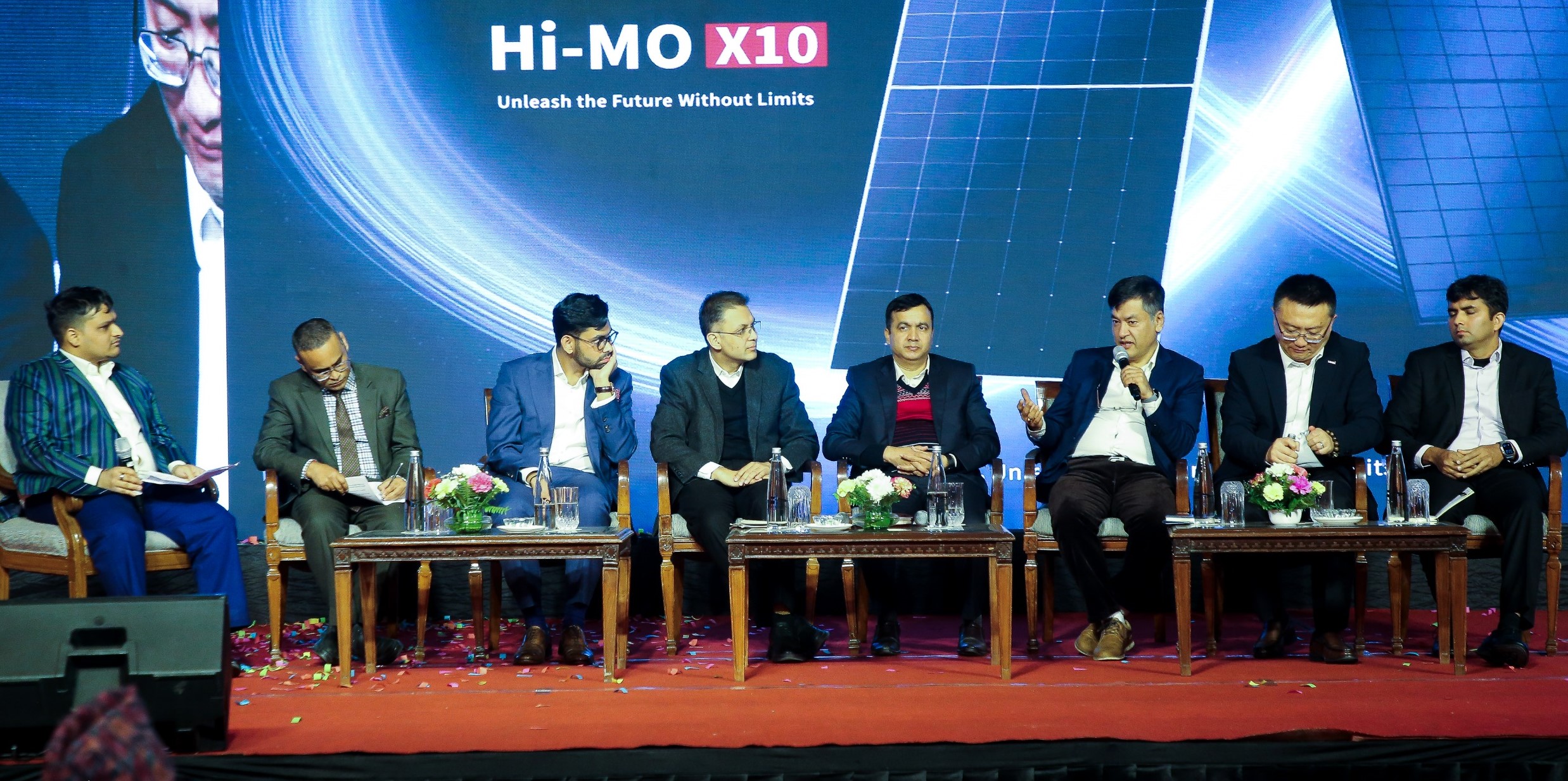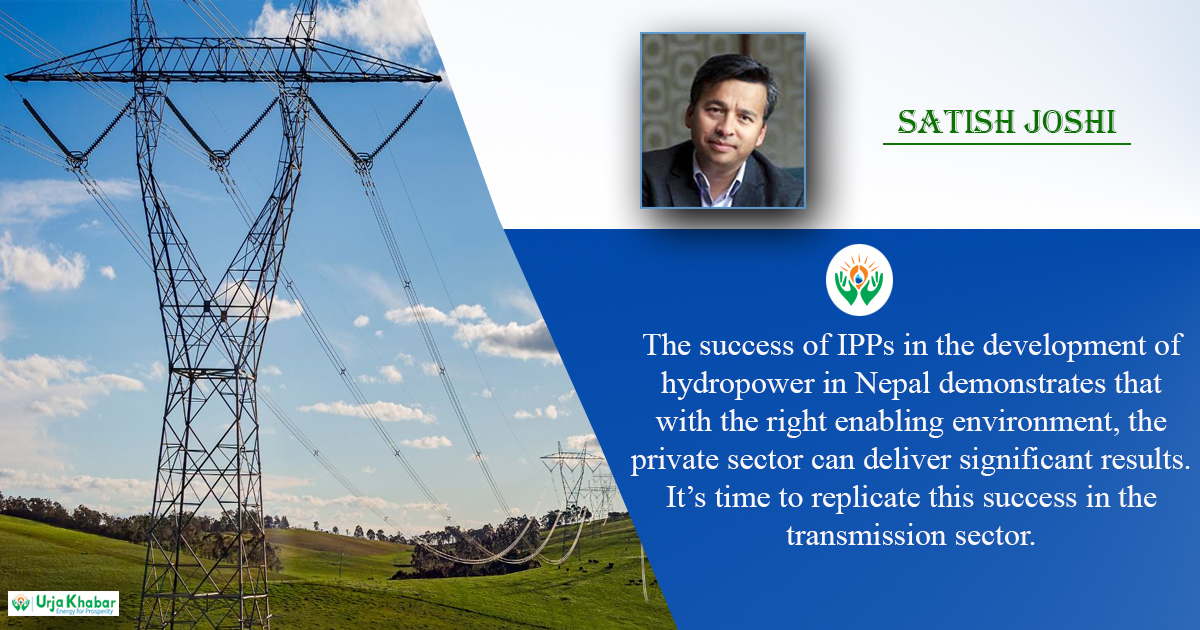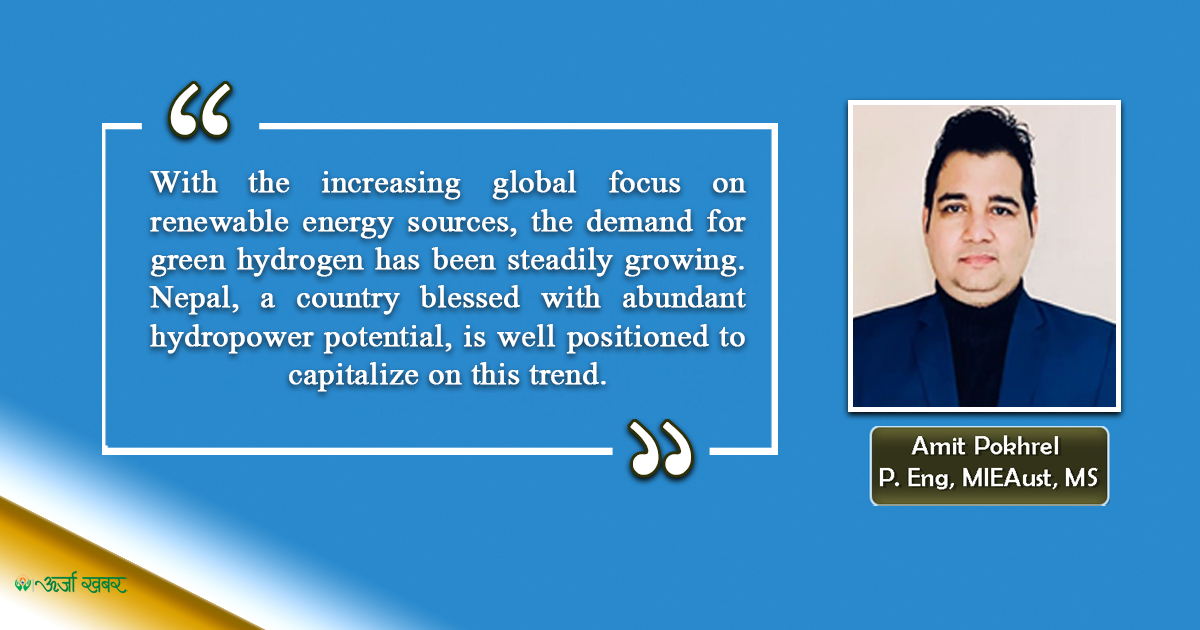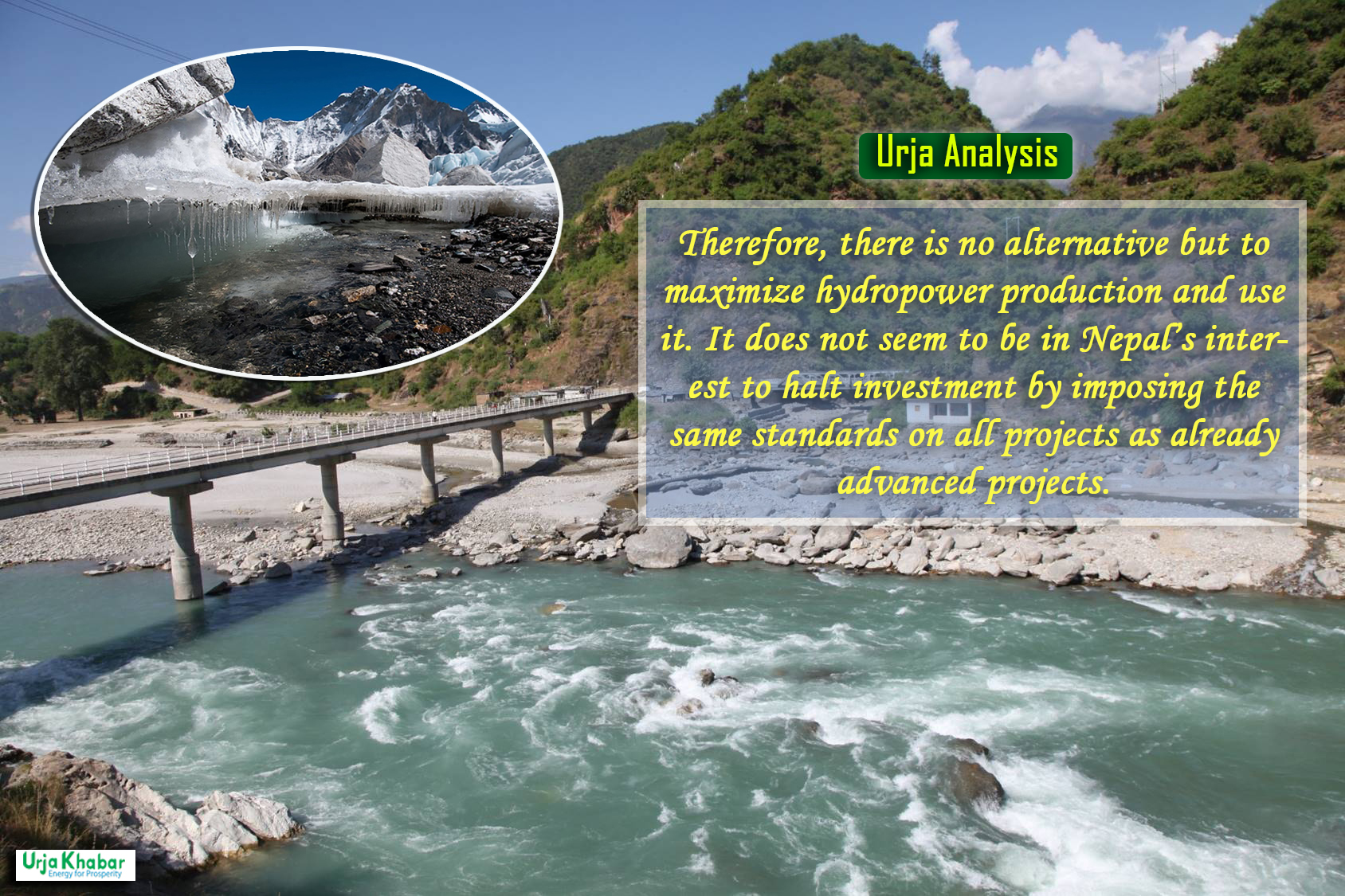Energy Update
Hydrogen fuel cell technology – An assiduous step towards green energy
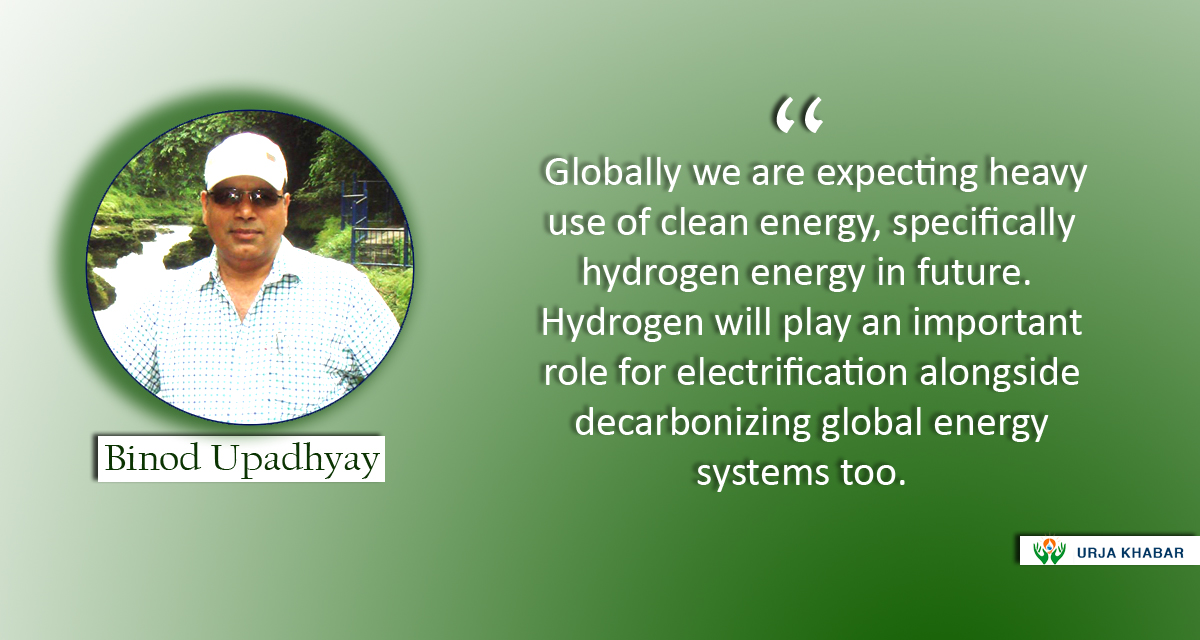
Kathmandu; Today is the age of technical revolution. Day by day new inventions are exploring in energy sector for Safe, environmentally friendly, and reliable energy supplies to the socio-economic platform for the sustainability and a high-quality life of the people living with social, political, environmental and economic challenges. Eventually people are becoming aware of no single source of energy will be a worth to dominate and govern the global energy market. Therefore, diversity in energy is today’s most prominent demand, thus an energy-mix model has been becoming a widely acceptance tool, which we are getting from the usable resources available in the different each country and region or by importing the same from other countries.
Recently world technology has inrushed into a new technology for reducing the carbon emission and in such Hydrogen is becoming a clean energy carrier. Its a most abundant chemical element available in the universe, which is accounting for 75% as a normal matter by mass and over 90% as a number of atoms. In hydrogen fueling operation hydrogen gas is oxidized electrochemically in a fuel cell system which generates pure water as a by-product which is totally free from carbon dioxide. So Hydrogen has been emerging as a new energy vector beyond its preliminary usual role as an industrial feedstock for the production of ammonia, methanol and petroleum refining.

The area of hydrogen application is extending day by day and literally it’s use has been started in the fields like transportation, power generation and militarized equipment because of the advantage of high efficiency and no adverse environmental effect. This growing technology with abundant resources obligates the concern experts and the country to set domestic hydrogen roadmap. And thus, hydrogen and fuel cells can meet the rising demands of most energy covering areas for socio-economic development. Therefore, many countries are cogently concerned for hydrogen development in their national strategies and implementing measures to promote the fuel cell industry too.
Recently on Wednesday on 31st august, Germany has inaugurated a railway line having a fleet of fourteen trains powered entirely by hydrogen to step forward for green train transports reducing almost 4400 tons of carbon.

In Japan, the government has promoted hydrogen energy to a national strategy and matured it as an industrial chain leading in technology and commercialization Thus this strategy is leading with a production capacity of over 10,000 units of Toyota Mirai and more than 300,000 sets of Ene-farm (Unsaturated hydrocarbon farm) cogeneration systems. The strategic energy roadmaps have been already developed by Korea, Japan, China, and Europe. All the roadmaps by different countries are commensurate with same goal of high efficiency, stability, low carbon emission, low cost and a large-scale production.
Apart from environmental sustainability most of the developed countries have energy security issue due to energy-scarce and for this hydrogen seems to be a boon to address long-term energy availability resources. Most developed country has the full and detailed roadmap for hydrogen production, stationary fuel cell, fuel cell vehicles (FCVs), and commercial applications from 2020 to 2030. In such they focus on hydrogen electrification through proton-exchange membrane fuel cells (PEMFCs), which are widely believed that it is ready for commercially automotive application, particularly for those vehicles which require minimum hydrogen infrastructure support, such as fleets of taxies, buses, and logistic vehicles.
A special concede of PEMFCs in automotive applications is the highlight to the infrastructure development for hydrogen generation, storage, and transportation. In addition, policy support, global targets, and challenges are also reviewed worldwide to observe the attitude towards hydrogen and fuel cells. Therefore, downstream applications of hydrogen in the automotive sector will be a continuous process of precise revision and a rational discussion for the hydrogen development for economy.
| Goals for hydrogen Production …… | Goals for Fuel cell vehicle |
Goals for Fuel cell vehicle Goals for Hydrogen refuel station |
| Goals for stationary fuel cost …… | Goals for commercial application | Goals for hydrogen supply chain |
| 2020 | 2025 | 2030 |
Strategy and Roadmap of Japan for hydrogen and fuel cell from 2020 and 2030…
Comparison between the main properties of hydrogen and other fuels
| Fuel type | Joule/Kg | Joule /Cubic meter | Energy reserve factor | Carbon Emission specific ( Kg C/kg fuel) |
| Liquid Hydrogen | 141.9 | 10.10 | 1.00 | 0.00 |
| Hydrogen | 141.9 | 0.013 | 1.00 | 0.00 |
| Fuel Oil | 45.50 | 38.65 | 0.78 | 0.84 |
| Gasoline | 47.40 | 34.85 | 0.76 | 0.86 |
| Jet fuel | 46.50 | 24.40 | 0.75 | - |
| Natural gases | 50.00 | 33.00 | 0.75 | 0.46 |
| Coal | 30.00 | - | - | 0.50 |
Conclusively in coming decades we should prevent the fossil fuels for being not responsible for environmental degradation and dependent to it. Globally we are expecting heavy use of clean energy, specifically hydrogen energy in future. Hydrogen will play an important role for electrification alongside decarbonizing global energy systems too. Due to low density transportations become attractive and easy to carry liquid hydrogen. This low density also supports the infrastructure burden for implementation and storage. Therefore, the experts are mainly focusing on the main three things fuel cell design for high efficiency, commercial market and strategy supports as well.
References
A, M.G., 2001. Thin graphite bipolar plate with associated gaskets and carbon cloth flow field for use in an ionomer membrane fuel cell US. Adamson, K.A., Butler, J., Hugh, M., 2008. Fuel cell today industry review 2008: and different literature from Anon……….
Conversation
- Info. Dept. Reg. No. : 254/073/74
- Telephone : +977-1-5321303
- Email : [email protected]










